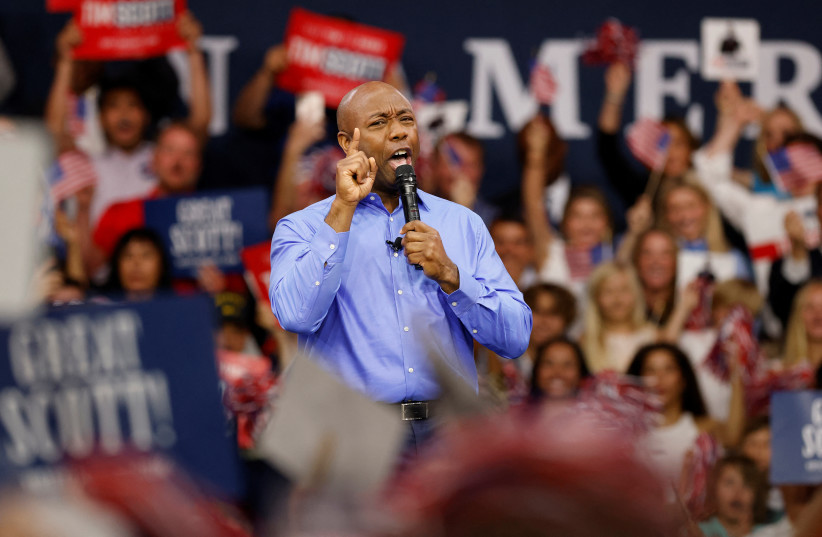On a flight from New York to Madrid earlier this month, I was sitting next to a 69-year-old anesthesiologist from Bakersfield, California who said he was about to retire. When he told me where he lives, I remarked “ah yes, Kevin McCarthy country.” McCarthy is the member of Congress from Bakersfield, and the Republican Speaker of the US House of Representatives. The doctor was quick to tell me that he is not a Republican but a liberal Democrat, no doubt a rarity in solid red Bakersfield.
He then asked me how I would classify myself, and I said that I am a centrist. I elaborated and said that I usually take a middle-ground position and believe that, with compromise, most but not all problems can come to some level of consensus where parties on both sides of an issue can find accommodation. He looked at me and said, “Wow, I never met anyone who defined themselves as a centrist.”
How sad that there are not more of us. The world in which we now live has deteriorated into tribes of “us” and “them,” with very little interest by anyone in finding a middle ground.
Rabbi Dr. Meesh Hammer-Kossoy, director of the Year Program at the Pardes Institute of Jewish Studies in Jerusalem, last week wrote about the lack of centrist ideology in an article that appeared on the Jewish News Syndicate website.
The 'us vs them' ideology
“Our current world has succumbed to centrifugal force – the magnets are pulling us to the extremes, causing us to experience our identities as binary rather than complex, as ‘us vs them,’ as threatening rather than mutually enriching,” she wrote. “We feel it in our world, we feel it in our country, and I feel it in my work at Pardes – an institute that brings Jews together from across the religious spectrum to learn from the Torah and one another.

“Resisting that pull is incredibly challenging on a national and a personal level. However, our diversity is our great strength. Rather than pull to the extremes, we must amplify the centripetal force, center ourselves symbolically around the ark, and see our critical identities as contributing to the whole, united around a central mission.”
The analogy of centrifugal and centripetal forces is an accurate description of where we are today. In Israel, as in the rest of the world, we see people chained to the circumference of the circle, unwilling to let go of hardened positions and allow the centripetal forces to bring them closer to the center and to one another.
The centrist in me knows that what we have in common with each other, on almost every issue of import, far outweighs what divides us. We know that most of the country agrees we need judicial reform, we just differ on the form and the extent. We know that a functioning democracy would perform better with a constitution, we just differ on what it should cover and who will write it.
We know that we need to find a way to live in peace with our Palestinian neighbors, we just differ on how we envision that coming to fruition. We know that we all want a Jewish and democratic country, we just differ on what constitutes a country so created.
ALONG COMES the holiday of Shavuot to remind us of our power to move to the center and the fact that one day for sure were a united people.
The ultimate moment of glory for the Jewish people – our greatest hour – occurred, according to tradition, as the Torah was revealed at Mount Sinai. Our ancestors remarkably and unanimously pledged, Na’aseh v’nishma – “We will do and we will listen to all that God has declared” (Exodus 24:7).
They made two promises: to do, and to listen. The order is crucial. They promised to keep the Torah, even before knowing why. The Midrash (Shabbat 88a) related that, in the merit of this pledge of loyalty, the angels rewarded each Jew with two crowns. And a heavenly voice explained, “Who revealed to My children this secret used by the angels?”
What was so special about this vow, “We will do and we will listen”? On the contrary, would not fulfilling mitzvot with understanding and enlightenment be a superior level of Torah observance? And why does the Midrash refer to this form of unquestioning allegiance as a “secret used by the angels?”
While wisdom is usually acquired through study and contemplation, there exists in nature an intuitive knowledge that requires no formal education. The bee for example, naturally knows the optimal geometric shape for building honeycomb cells. No bee has ever needed to register for engineering courses at MIT. We humans are also reservoirs of intuitive knowledge.
Intuitively, we know that moving toward the center makes life more meaningful than being chained to the edge. Experience has taught us that taking a hard line, positioning ourselves as immovable, and always saying “no” rather than “perhaps” is a one-way ticket to misery and disappointment.
So, this Shavuot let us hope that the centripetal forces will be stronger than the centrifugal forces, so that our society will find a way to achieve the compromises that make our world comfortable for all.
Perhaps, at least once more, we can say, as the revelation narrative is read in the synagogue, “We will do and we will listen.”
Chag sameach!
The writer, a Jerusalem resident, is CEO of Atid EDI Ltd., an international business development consultancy; the 2023 recipient of the Chicago Board of Jewish Education’s Rambam Award; former board chair of the Pardes Institute of Jewish Studies, and past national president of the Association of Americans & Canadians in Israel.
